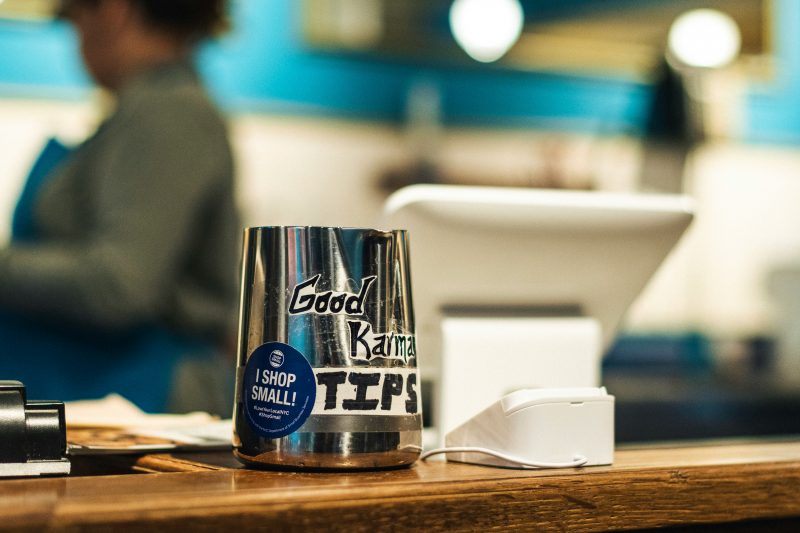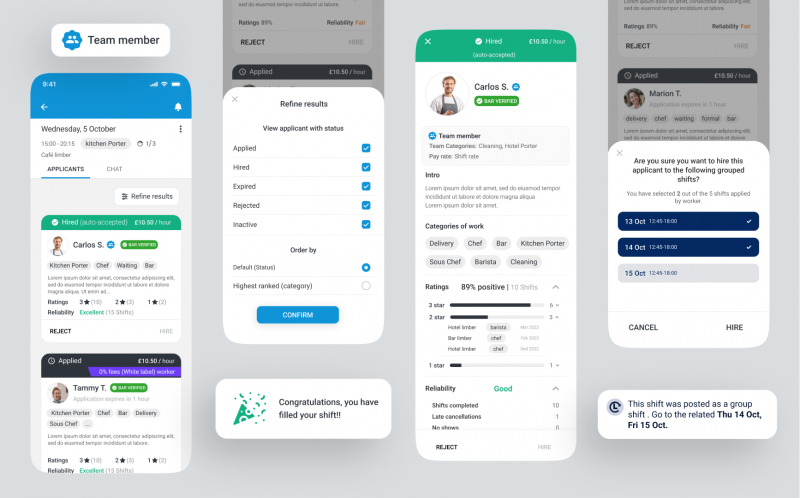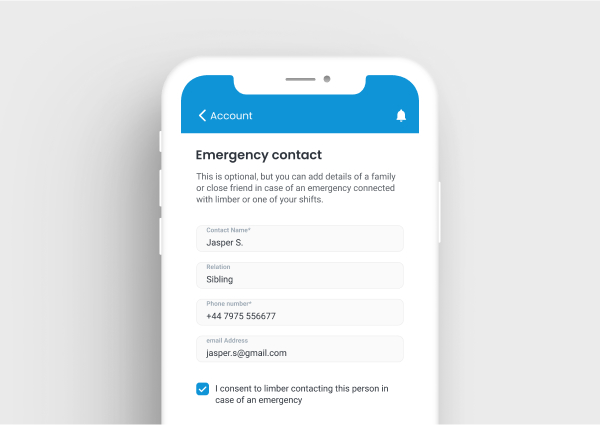Ensuring you’re ready to reopen and how limber can help
It’s fair to say that the Covid-19 pandemic has had a significant impact on the hospitality industry, but recent announcements means that for business owners, there may finally be a light at the end of the tunnel. With the majority of pubs, restaurants and cafes given ahead to reopen on July 4th, what now needs to be done to ensure that opening the doors is both safe and worthwhile?
Embrace technology
Much of the hospitality industry relies on face to face interactions, but remote work such as sales, bd positions, eCommerce and digital marketing can, and should all be performed from home. For most, the past few months will have seen profits take a hit, which means getting your business in front of the right customers is more important than ever.
For example, if all trade is currently taking place online, it could be worth investing in a web designer or seeking help with online marketing, as part of adapting your business to meet new needs. Social media is a great communication tool, and should be utilised for sharing updates and safety information, as well as promoting your business. Now more than ever, it’s important to diversify (see point 2).
On a more practical level, it may also be worth looking at self-service pay systems, ordering through mobile apps, click and collect systems, pdf menus and online bookings, as ways of minimising human contact. It’s likely that venues that didn’t previously take bookings will now require it in order to manage capacity, so make sure these systems are in place and working correctly well before opening your doors. There’s a huge range of platforms and tech available so do your research to find what’s going to work for you.
Pivot your offering
According to UK Hospitality, 1m distancing would see venues trading at 70% capacity, so don’t dismiss other money-making avenues, even if you’re planning to reopen. From make-it-yourself kits to buy-now-pay-later schemes, many businesses have been forced to think creatively and change the way they do things. Increasing numbers of restaurants who would not previously have considered the idea, have turned to takeaway and delivery to survive the crisis and some have found it highly a successful venture.
You should also bear in mind that not everyone will feel comfortable to venture out straight away, so don’t abandon the at-home experiences, gift cards, dispensaries, lunch boxes, picnic supplies and hampers that you’ve been working on, just because in-person service is now also an option.
Source necessary stock and equipment
Social distancing rules and safety measures mean you’ll most likely have to invest in equipment and stock that wasn’t previously required. You may need outdoor seating, disposable glassware, cutlery, condiments and table cloths, PPE such as gloves and masks, hand sanitising stations, ‘heavy duty’ cleaning supplies, and even cones and barriers for managing queues. Think carefully about how your business is going to operate and what will be required in order to do so safely.
It’s also worth noting that if you do plan to use outside dining space or pavement seating where you haven’t done so previously, local authorities should be contacted for advice on how to implement this lawfully. It’s important to consider whether you have enough appropriately trained staff to keep people safe or if you need dedicated staff to encourage social distancing and manage security.
Rethink existing health and safety policies
It goes without saying that it’s crucial to have appropriate health and safety policies in place. While temporary, Covid-19 has set an entirely new definition of what makes a restaurant experience good, and maintaining business is going to heavily rely on making the customer feel safe and at ease in the environment.
Additions such as complimentary hand-sanitizer stationed at the entrances and exits, routine disinfecting of commonly used surfaces and a clear plan of actions to prevent the spread of the illness will all need to be considered. If you can show your customers that all the necessary precautions are being taken to reduce transmission, they’re more likely to return to your venu, the best way to do this would be to print and carry out this government provided coronavirus risk-assessment and make it public, either in your venue or online.
You can read the most recent government guidelines on how to operate safely upon reopening. here.
How are we helping at limber?
Just like you, in light of Covid-19, we’ve had to adapt very quickly. Here’s just a few ways we’re making things easier for businesses ahead of July 4th, and beyond:
1. We’ve turned off all limber fees for the time being to give you one less thing to worry about. When you post a shift, you’ll pay 0% commission on all your transactions, for as long as we’re able to offer it. Our usual rate is 10%, but we’ll give you plenty of notice when we re-introduce it.
2. All limber workers will be consistently reminded to follow Public Health UK guidance on self-isolating so that no one comes to work with symptoms. We do not expect anyone to turn up to work with Covid-19 symptoms, but if this occurs there will be zero tolerance.
3. Our cancellation policy will be relaxed so that no worker gets marked down for doing the right thing.
4. We’re currently exploring the feasibility of supplying PPE to distribute to our most active hirers to distribute to limber workers.
5. We’ve added new work types, such as cleaning, stewarding and marketing to cater to new ways of running your business. You can now connect with people on limber to fill all of these roles and beyond.
6. We’ve introduced stints to make it easier for you to book staff for longer periods of time, (this could also help if you’re looking to introduce a pairing or rotation system to keep staff contact to a minimum.) To post a stint, simply choose a start and end date, and book someone for a week, a month or even a year.




